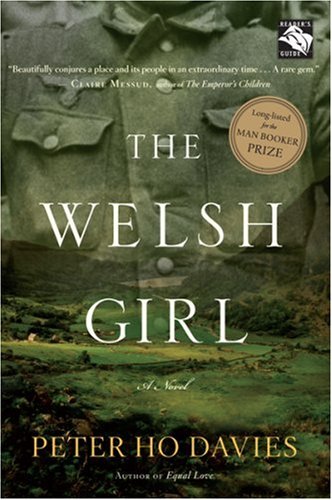The Welsh Girl
This first novel by Peter Ho Davies, named one of Britain’s best young novelists, chronicles the life of young Esther Evans as her rural Welsh community comes to terms with a German POW camp set up outside their village in the aftermath of D-Day. While watching local boys taunt the prisoners one evening, a soldier suddenly calls out to her. Karsten Simmering, a German corporal, is struggling to maintain honor in extreme circumstances. Drawn to each other, these two work towards an uneasy understanding.
The author’s bringing together of such diverse worlds works well to create tension throughout the story. Readers can’t help but be drawn into the world of a close-knit Welsh village and interested in how their lives are affected by the camp, especially as local soldiers continue to die in battles.
When Esther or Karsten is narrating the story, it moves along at a good clip and feels natural. However, when readers are presented with a third point of view in the form of a German-Jewish interrogator working hard to break German prisoner Rudolph Hess, imprisoned in Wales, it feels forced. It’s almost as if the author felt compelled to include this historical tidbit and to have his interrogator be of Jewish descent in order to remind readers of the reason behind the war.
The Welsh Girl is an intriguing read if only for the story of Esther and Karsten’s relationship. Davies evokes a sense of place and time so well that readers can almost hear the radio crackling in the pub. In spite of the sometimes-forced storyline about Rudolph Hess, it’s a well-written, interesting book and one worth reading.










